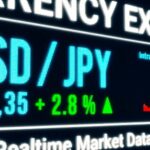Oct 16, 2022
VOT Research Desk
Market Analytics and Considerations
The fear that the Federal Reserve’s aggressive rate hike campaign could send the economy into a recession precedes the start of the U.S. earnings season. An update on the housing market in the United States, where rising borrowing costs have already slowed demand, will be provided to investors. The agenda includes appearances by several Fed officials.
After Prime Minister Liz Truss was forced to fire his predecessor, Jeremy Hunt will spend his first full week as Chancellor in the United Kingdom. China’s third-quarter economic data is likely to highlight the difficulties facing the world’s second-largest economy elsewhere, while Japan’s yen is once again under intervention watch. To get you ready for the week, here are the essentials.
Earnings Companies are starting the third-quarter earnings season by reporting results in a difficult environment brought on by the stronger dollar and persistently high inflation.
S&P 500 company earnings are anticipated to have increased by 4.1% from the previous year, the slowest rate of growth since the fourth quarter of 2020.
However, executives’ projections of the future may get more consensus analyst estimates are for profits to rise by nearly 8% next year. Though, many investors are skeptical of that forecast because of the possibility of a recession.
Stock prices have fallen as a result of market selloffs, but a worsening outlook for earnings could make stocks less appealing. Tesla (NASDAQ: TSLA) is one of the businesses scheduled to report earnings this week. Netflix (NASDAQ: TSLA),Johnson & Johnson (NYSE: JNJ) and NFLXJNJ).
Data on the housing market in the United States Following last week’s higher-than-expected inflation in the United States, the focus will shift to the housing market, with reports on building permits, housing starts, and sales of existing homes due.
In July, house prices fell for the first time in over a decade as rising interest rates impacted demand for housing and decreased mortgage applications.
Industrial production, the Philly Fed Manufacturing Index, the Empire State Manufacturing Index, and initial jobless claims are all included in the economic calendar.
Neel Kashkari, Charles Evans, and James Bullard, presidents of the regional Fed, are also scheduled to make appearances that will be closely watched.
On Saturday, Bullard said that the CPI numbers from the previous week showed that inflation had become “pernicious.” He also said that the Fed could raise rates by 75 basis points at its meetings in November and December, but that it was too early to make that decision.
British government bonds will resume trading on Monday without the support of the Bank of England’s emergency bond buying program, which ended on Friday. U.K. attempts to restore calm
After the initial economic plan proposed by Liz Truss and former Chancellor Kwasi Kwarteng shook up financial markets, Britain’s new Chancellor Jeremy Hunt has stated that he will restore the public finances of the nation.
Fears about the state of the public finances have been eased by reports that the government is getting ready to make a big change to the planned tax cuts. However, in order to avoid a new bond selloff, these reports need to turn into actual plans.
Investors will also look at the U.K. inflation data for September on Wednesday, which is expected to be in the double digits because of the rising cost of living. On Friday, retail sales figures are expected to show that consumers are spending less.
Data from China China will release GDP data for the third quarter on Tuesday. Although growth is anticipated to improve from the previous quarter, the economy is still on track to grow at its slowest annual rate in nearly 50 years.
In the three months leading up to September, the annual rate of growth is anticipated to increase by 3.4%, up from 0.4% in the second quarter.
The world’s second-largest economy has been impacted by strict COVID-19 restrictions, supply chain disruptions brought on by the war in Ukraine, and a slowdown in global growth caused by sharp increases in borrowing costs to control inflation.
China’s economy is expected to expand by 3.2% in 2022, well below the official target of 5.5%.
Investors will be keeping an eye on the Communist Party Congress, which began on Sunday and will last for a week, to see if there are any clues about economic policy.
Intervention in yen on cards paradox.
The yen will be closely watched by foreign exchange traders due to rumors that the Bank of Japan may take additional measures to support the currency after intervening in markets for the first time since 1998 last month.
The yen’s recent fluctuations, according to BoJ Deputy Governor Masazumi Wakatabe, were “clearly too rapid and too one-sided” on Saturday, raising concerns about the potential economic consequences of the currency’s plunge to 32-year lows against the dollar.
In September, Japan intervened in the foreign exchange market to stop steep yen falls that were largely caused by the policy divergence between the Fed’s aggressive rate hikes and the Bank of Japan’s ultra-loose monetary policy to reach its 2% inflation target.
Japan stands out from other global central banks that are supporting a fragile economic recovery while also raising interest rates to combat hyperinflation.









